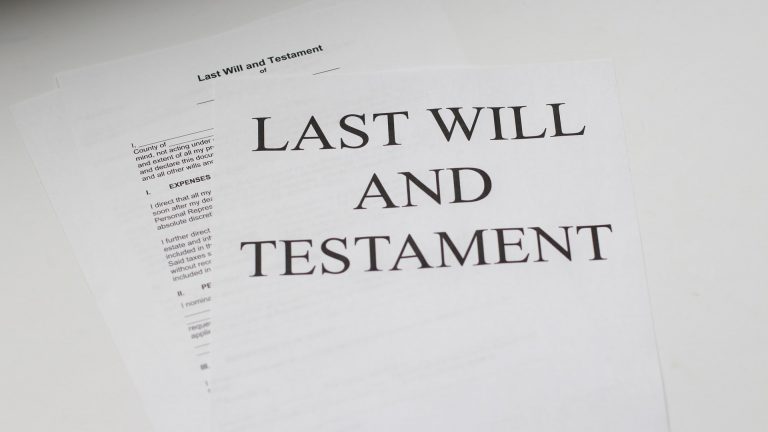One thing that every single person on this planet has in common is that none of us can take anything with us when we die. All our belongings stay behind on Earth and need to be redistributed or disposed of responsibly. That is where estate planning comes in. Your estate comprises everything you own – property, savings, life insurances, vehicles, books, furniture…
Why does estate planning matter?
No matter how large or small your estate may be, working out now what will happen to it after you pass away is a sensible, responsible and above all kind thing to do. Kind because it removes an enormous burden from your loved ones. They may not be in the right state of mind to tackle such decision-making and administration at what will be difficult for them. Having access to clear and considered instructions can also help prevent disputes and arguments that can not only cause distress but could also hold up probate or the process of unravelling and redistributing your estate.
What happens if you do not plan what will happen to your estate?
If you die without making a Will, this is called intestacy. Your estate will be divided according to the law of the land, which may not reflect your wishes and could cause ill-feeling and problems for those left behind. The rules consider your surviving relatives, who inherit in a legally set out order. If you have no living relatives, your estate passes to the Crown. Another essential fact to know is that if you are not married or in a civil partnership and die without making a Will, your estate will not automatically pass to your spouse or partner. Even if you have lived together for a long time and/or have children together.

What is involved in estate planning?
Estate planning can be summed up by the provision of instructions about what will happen to your estate after you die. This process is usually completed in several stages. The benefits of making a will ensure that everything is passed to the person, people or organisations of your choosing while paying the least amount of tax, legal fees and other costs possible. Good estate planning covers the following areas:
· Instructions for your medical and social care, should you become incapacitated in the months/weeks/days leading up to your death
· Instructions for the care and/or guardianship of any children or dependents during the same time frame
· Arrangements for financial income to replace any losses incurred by your no longer being able to work or provide for your family
· Transfer of any business interests
· Leave written instructions about how to distribute your estate – this is usually covered in a Will, although supplementary letters can also be written and filed with the main Will documents
· Minimise any tax obligations by careful planning, investing, and using trust funds. Leaving clear instructions could also save your loved ones expensive court fees as they won’t have to seek legal expertise to resolve any outstanding issues
· Planning your funeral can be done in as little or as much detail as you wish. You can also pre-pay a funeral to protect against rising costs in the future and relieve your family of the financial obligation when the time comes.
Estate planning is an ongoing process. The contents of Wills or letters of instruction can be updated and reviewed at any time, as can the contents and arrangements around any financial planning. Sometimes, tax rules and regulations change, e.g. when the Government announces a new Budget, and the repercussions could mean that different plans must be made to reflect the revisions. For example, if inheritance tax thresholds rise or fall. Life changes can also spark a revision to estate planning, such as the arrival of a new child or grandchild, the sale of a business or the unexpected acquisition or loss of significant assets.

Some people think that estate planning is a morbid or ominous thing to do. However, it is a sensible and ultimately highly thoughtful process to go through, and there is no set age at which it should be done. If you start early on in your life, it can become a healthy habit to ensure that your wishes for your estate remain up-to-date and relevant to your personal circumstances.
What to do next?
If you are interested in finding out more about planning your estate and writing or updating your Will, speak to Shortlands family Solicitors to find out how to proceed. The process is simple and will offer great peace of mind when complete. There are several resources online to help, such as this helpful publication from Age UK.
